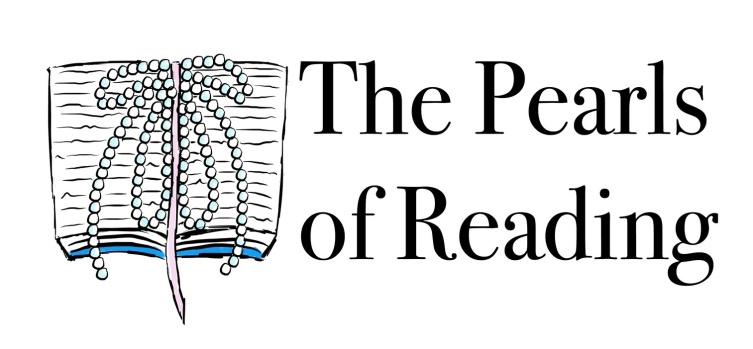
Title: The Latehomecomer
Author: Kao Kalia Yang
Author’s Country of Birth: Thailand
Ethnicity: Hmong
Genre: Historical Nonfiction/Memoir
Page Numbers: 277
Publish Year: 2008
Rating: ☆☆☆☆☆
What Is It About?
After the Vietnam War ended, the Laotian Communist party and their Northern Vietnamese allies made it a mission to exterminate all Hmong supporters of the Americans. During the war, the United States had opposed the Communist party and sought military support from the Hmong. As a result, most Hmong men and boys died for the war–and afterwards, when the Americans withdrew from Laos, the Hmong were left behind. Thousands of Hmong were slaughtered by the Pathet Lao and Northern Vietnamese soldiers. The remaining survivors fled for the jungles and attempted to cross the Mekong River to Thailand’s refugee camps. There, they were safe–but their trials and hardships didn’t stop there.
“The Latehomecomer” is a Hmong family memoir, being told from Kao Kalia Yang’s perspective as she tells the story of her family’s journey from the jungles, to her birth in the Ban Vinai Refugee Camp, the family’s transition to America, and their new life as Americans. She shares her personal experiences as a young Hmong girl, struggling to re-adjust to a new life in Minnesota, United States as the Yang family faces prejudice, language barriers, economic obstacles, and tears. For Kalia, starting over from complete scratch was already frustrating. But when her grandmother, Youa Lee, is relocated to California, Kalia suddenly feels the growing division between her past…and the possible future in America.
Initial Thoughts…
Here I was, diving into another book about the Vietnam War.
Though I am Hmong and I have spent years–reading about the Vietnam War–and realizing, with bitter acceptance, that the Hmong were almost always excluded from history textbooks–I was mentally preparing myself for the gruesome truths before I actually got my hands on this memoir. Personally, the fact that it is a book written by a Hmong person about the Vietnam War and aftermaths was refreshing, because I felt that not enough Hmong stories were being published for the country to read.
As a first-generation Hmong-American, I feel that it is important of us Hmong to support one another and root for each other’s success than tearing them down.
How to Describe the Overall Book?
To be honest, I felt guilty while reading the book–not only because I felt bad for asking insensitive questions about life before the Vietnam War when I was growing up, I didn’t know about the miserable hardships of my parents and their families when they were fleeing from the Communist soldiers. I was so angry–I felt ignorant–and I just…couldn’t help but think of my parents as I continued reading. I also felt deceived by United States history books–because not only were the Hmong invisible from most of them, there was no mention of heart-breaking sacrifices that the Hmong had to make when supporting American soldiers–and I probably wouldn’t have known if it weren’t for Yang.
Overall, “The Latehomecomer” was well-written and easy to understand for those who are not familiar with Hmong culture. Yang didn’t spend too much time lingering on background information and was able to build up a strong, personal voice through first-person narrative. Her attention to the dates were crucial to one knowing when the given event took place in the book as well as informing the audience how old she was around that specific time. Other details I’ve noted included how Yang was able to incorporate flawless time skips that correlated to significant life events and painting vivid imageries.

What’s My Favorite Part?
The emotional depths of the author’s personal experiences as a refugee and bilingual child was easily relatable and heart wrenching. I loved how Yang described the difficulties of not only assimilating into American culture but also learning how to read, speak, and write in a different language while growing up–because there are still many people out there, who do not understand how hard this can be on a child alone. There are still children, who are doing this all around the world–and speaking their native tongue, their first language, at home! This takes hard work and dedication, extra hours of studying, and also, a major mental toll.
In addition, the way that Yang introduces the reader to how she had felt being divided between Hmong and an American is a common experience that most bilingual children go through, especially in traditional families of non-American origins. I, for one, went through that several times throughout my life! Traditional families may clash with American ideas from time to time, leading to large amounts of stress and conflicts between the child and parent(s). Life events like Yang’s will usually cause the child to reflect heavily on their separate identities–much like staring into the faces of two mirror reflections.
What’s My Least Favorite Part?
There was little room to complain actually, because the book was straight to the point and consistent with its theme. As a Hmong person, I recognized many of the cultural customs mentioned in “The Latehomecomer” and specific time periods related to the Vietnam War and after. After finishing the book, one can tell that Yang had taken great care in creating a deep, heart-warming story of survival and family love because of her amazing story-telling skills.

And So…
Though I have read books about the Vietnam War before, “The Latehomecomer” was certainly different and unique from all the others, because it is written by a Hmong refugee. The history and background information about the Hmong and their culture proved to be certainly helpful and was written in a concise but easy to understand way for readers to grasp. The importance of family is echoed throughout the novel and is of common but a most valuable thing in Hmong culture, because during war, one cannot help but hope to come out of it, alive with loved ones.
To be surrounded by those who loves you and who are still here with you is probably taken for granted by many of us. Yang was able to shift my view in life back to my folks and made me remember how fortunate I was to have grown up in a family with two parents–and parents who survived an attempted genocide and war time. Sometimes, we can get so caught up in life that we forget about those who had fought with blood and tears for our futures. Sometimes, we get so lost in the small details that we overlook the bigger picture.
“The Latehomecomer” is definitely a must-read for people who are trying to expand their horizons about minority groups and forgotten histories. It is created by the tears of a people who were forgotten and invisible to many throughout the world, the strength of survivors who banded together with their families–for life or for death, and written by a woman who wanted to share the story of her people, to make a mark on American literature. It is a voice from the Secret War.
It is a voice that is no longer silent.
A voice that says, “We’re here.”
